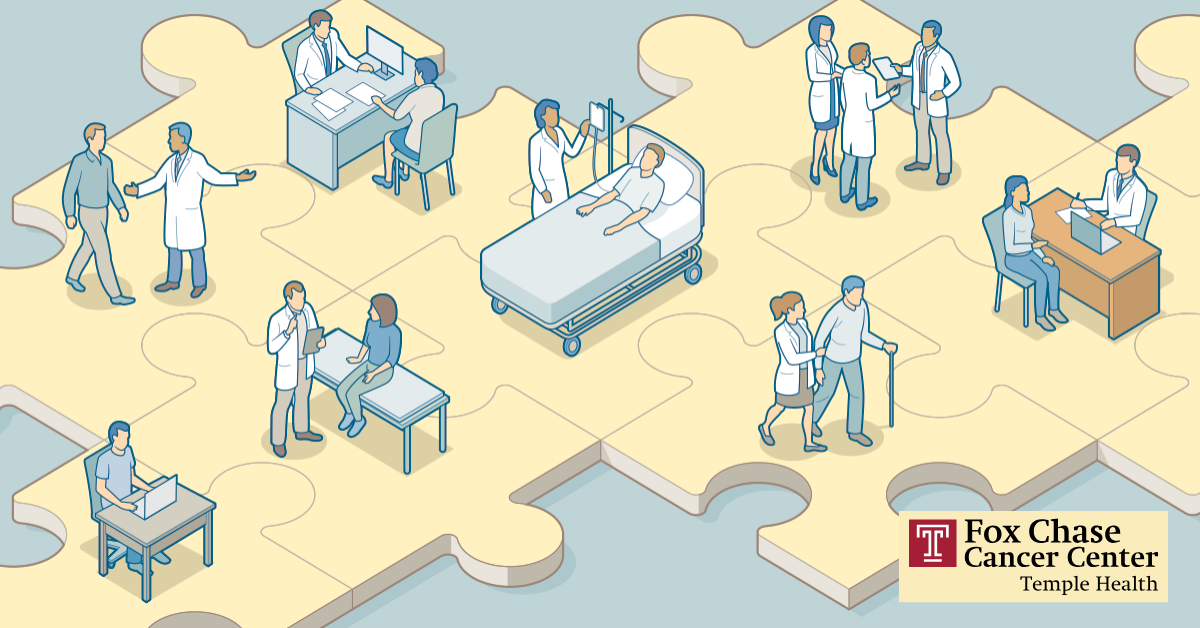
7 Things Every Patient Should Know About Cancer Care
-
Most patients who are diagnosed with cancer get the basics of their diagnosis and treatment plan from their doctors. But there’s more to know about successfully navigating the disease—and it can be tough to figure out where to start.
Here are seven things to keep in mind as you make decisions before, during, and after your care.
1. Be choosy about where you get cancer care.
Cancer treatment isn’t one-size-fits-all. When you go to a dedicated cancer care facility, you’ll gain access to experts who specialize in your specific disease and are up-to-date on the latest treatment options. In fact, research shows that patients who start their care at a dedicated cancer center have higher rates of survival.
2. Use trusted sources of information.
The internet has valuable information that can make a positive difference, but it’s easy to stumble onto something that’s misleading or even inaccurate. If you decide to research your cancer online, stick with credible sources like major health organizations and leading hospitals. Ask your treatment team for help finding reliable information sources online.
Your cancer center may be another good option. Fox Chase Cancer Center has a Resource and Education Center where patients can find trusted information with help from on-site health educators.
3. Get a second opinion.
It’s understandable to want to start treatment as soon as possible. But taking some time to seek a second opinion can help set you up for treatment success. Consulting with another expert can confirm important details about your diagnosis. You’ll also get another chance to review your treatment plan and to see if other options, like a clinical trial, might be available.
4. Consider participating in a clinical trial.
These cutting-edge studies have the potential to offer lifesaving benefits. But they aren’t just for patients who’ve exhausted all of their other treatment options. Clinical trials are open to patients in almost every situation, including those with early-stage cancer.
5. Seek out a cancer center known for its good nursing care.
You’ll spend more time with your nurses than with any other member of your care team. So it’s worth seeking out a care center with a highly qualified nursing staff. Fox Chase is among the select group of hospitals nationwide to achieve Magnet status, which is regarded as the highest recognition in nursing excellence. Magnet-designated facilities are known for their top-quality patient care and score high in key areas like patient satisfaction and low rates of hospital-acquired infections. And, an even rarer achievement, Fox Chase has maintained Magnet designation six consecutive times, since 2000.
6. Let go of the past.
It’s easy to beat yourself up over things you did or didn’t do regarding how you got sick or the decisions you made about your treatment. But allowing yourself to get swallowed up by guilt or regret makes it harder to enjoy the good things happening in your life right now. Do what you can today to care for yourself, and try not to blame yourself for things you can’t change.
7. Be your own best advocate.
You are one of the most important members of your cancer care team. Communicating your concerns, hopes, and questions effectively to your treatment team is crucial.
Whether you are just beginning your cancer journey or in the midst of it, it is important to feel supported. Reach out to your care team if you have questions, and advocate for yourself!
